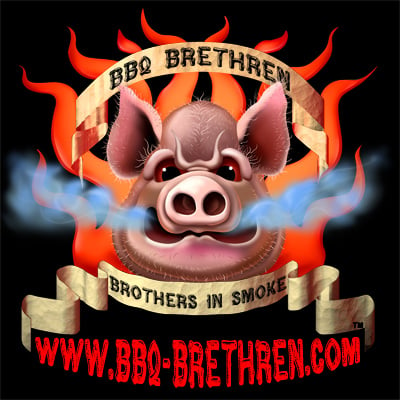This is just a cut and paste that people may find informative.
About Collagen Breakdown In Meat ***See Directions*** 1John Isenhouer asked for a thesis on collagen. It won't take a thesis to discuss the process as it relates to BBQ.2Meats are made of muscle, connective tissue, fat and bone. Muscle contains proteins and glycogen. As the temperature of the meat increases, glycogen, a long chain sugar, is reduced to simple sugars. This caramelizes and is responsible for one of the flavor components.3Proteins (flavorless) are denatured to amino acids which not only have flavors themselves, but undergo Maillard browning reactions which adds another flavor component.4While bone adds no flavor itself, the marrow is rich in methyglobulin and other proteins. This reacts with smoke nitrites to give us the smoke ring. You may have heard that "the sweetest meat is next to the bone". The proteins are reduced to amino acids. Nutrasweet is an amino acid.5Fat is very simple cells which breakdown to sugars, fatty acids, and triglycerides at low temperatures.6Collagen is proteins that have lots of side chain bonds. This makes them elastic. It takes more energy to denature them than the simpler proteins of muscle tissue. Energy in the form of heat will denature these proteins into the flavorful amino acids.7If the temperature is too high, the water in the muscle cells and the fat is rendered out before the collagen melts. This results in dry, tough meat. Too low and you risk bacterial activity.8Tough cuts of meat like brisket and pork butts benefit from low temperature cooking as the collagen adds flavor to the meat. Less tough, more expensive cuts do not need this phase and can be cooked at high temperatures for shorter periods. That is why ribs take only a few hours and briskets take 20.
